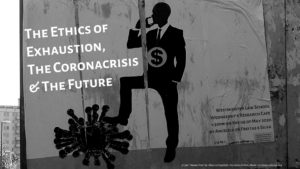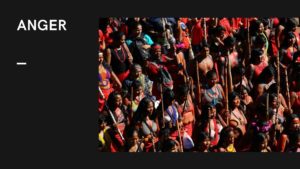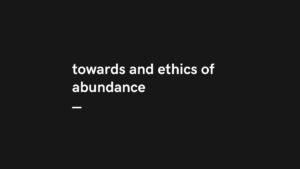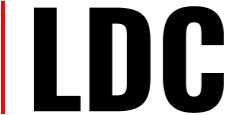The Ethics of Exhaustion, the Coronacrisis and the Future

*This text was presented by Angelica Silva at the Westminster Law School Wednesday's Research Cafe, on the 6th of May 2020. The presentation is available here: The Ethics of Exhaustion Coronacrisis and the Future
Quarantining vibes
I heard – there is no back to normality. Everything after the Coronavirus pandemic will be different. The world is learning that it is possible to work remotely, that all the peoples in the planet are somehow connected, that we need science to save us all, and that we need solidarity. Awareness is the first step towards change. It is a task to understand how humanity perceives ways for the production and reproduction of life.
This is an ethical perception: how we produce life, well as the importance of the influence of the collective lives in the individual, subjective life. The capacity to produce and reproduce life is hierarchized, evidencing the gradient between living a full life and surviving. The ethical system we live in trivializes the exhaustion of the lives of some so the lives of others can, in fact, be produced and reproduced. The hierarchization of peoples, ecosystems, and knowledges enable a certain ethical subject to prevail over the others. The pandemic is a snapshot of the system.
This is an ethical system of exhaustion, that evidences the need of an ethical change. In the ethical system of exhaustion there is no possible future. The vaccine may be a solution for the Coronavirus, but not for the system of disposable lives.
I am going through phases during the quarantine.
There was the moment of denial. Not the denial of the gravity of the pandemic, but the denial of the times we are living. “We will overcome this crisis”, they said.
Then there was the moment of fear. Not the fear of death per se, but the fear of another unprecedented economic crisis. “It is the worst economic crisis of all time!” They weren’t referring to the fear of a pandemic.
Then there was the moment of anger. My anger. Anger of another capitalist crisis. Anger of the invisibility of the victims before the tragedy. Anger of the ignorance that this system needs the victims.
Then I had the moments of resoluteness. It was just the right moment to say the inevitable: we knew it was coming. We are not willing to produce and reproduce life. There is not a general aim to preserve life. This is a pandemic in the global ethical system of exhaustion. The change comes from places that are not benefiting from the system. Decolonial places.
Everything is being a mix of denial, fear, anger and resoluteness, co-existing as a very long 40 days period. I feel like we are all exhausted. I would like to share a monologue of the discomfort of my anger moments, to provoke a discussion.
The Anger Moment - a monologue

After this moment of “solidarity” of home offices, it is presumable that the main goal is to go back to try and live more comfortably all over again.
Is this “altruistic home office” the one-for-the-other that Levinas suggested to confront the Heideggerian Daisen?
Or is it the denial of the sub-ontological difference of the colonial subject?
Well, for the colonial subject (the racialized, genderized subject) “[d]eath is not so much an individualizing factor as a constitutive feature of their reality”.
And we know that.
Let’s stop this “no one is safe”, or this “the crisis made us all vulnerable in the same level”. We sound like we’re in a collective dope.
We know that this unprecedented crisis is not as unprecedented as we’ve been saying.
We all know that there is a global crisis for a long, long time, generating the corpses that are pilling at the doorstep of our institutionality, sub-notified corpses that cannot be recognized and buried.
We all know these corpses.
They are the walking-dead, the zombies, the creatures who live besides death in the tilth, in the slave ships, in the factory grounds, in the indigenous lands, in the offices, in the start-ups, in the ubers, in the Amazon deliveries, in the hospitals’ cleaning cupboards, in the prisons.
We all also know how it is to fear a pandemic – before, during and after it – since at least the plague. Yes, the plague, I said it. The same plague that Modernity came to overcome, to forget, to leave in the past, defeating the medieval demons with property laws, the sovereign absolutist state, the social contract, and the promise of a better life in the future. Modernity promised that the sacrifice of today will enable a better life tomorrow. And that we have to leave the past behind. With no past and a miserable modern present, the only option is the modern future.
Some would interrupt me right now and claim:
- but these are different times!
- The ways of production are different!
- The societies are different!
- We are living in a globalized world! Internet changed everything!
- How can you not recognize the severity of the moment?
- How can you not understand how bad is the current threat?!!
Oh, how I hate the difficulty in understanding the announced tragedy.
We living our lives like Chichikov, expecting fortune from the collection of dead souls, so we can get a loan out of the credit acquired from the purchase of the souls of dead serfs.
Isn’t it the main purpose of capitalist life?
Generating money out of nothing – money is pregnant!
Where are we going with all this? It is not possible to think that nobody saw it coming.
Starvation, immigrant crisis, wars, persecution, taking of land, mass imprisonment, climate crisis, environmental catastrophes caused by mineral and oil exploitation, capital accumulation and… billionaires!
Who is our capacity of producing and reproducing life working for?
Ok, producing and reproducing life is the content of ethics. It is the materiality of ethics.
When we choose the life that will win, we are producing and reproducing death, expecting that in the modern fetishized future we will produce and reproduce life. It is the saving sacrifice in the hope that we may have our lives less vilified when achieving some comfort: less survival and more living.
We are exchanging dead souls for the possibility of the modern fetishized future.
The life of the worker, the life of the planet. It is impossible to live a full life. The good economy of today (a.k.a.: the economy without “the crisis”) is only possible because of the pile of corpses at our doorstep.
The extra death, the unpredicted death, the pandemic deaths – these are predictably unwanted consequences.
Our world-system, the modern-colonial world-system, is viable because of the life of the victims. This is the ethical system of the last 500 or so years – the first global ethical system.
The victims are not a mischance or incoherence of this system, they are fundamental for the possibility of generating profit. The “abiogenesis” of capital is false, of course. The hierarchization of bodies, places, knowledges entail that some are giving life so others can ascend hierarchically. And this becomes systemic as it is naturalized, trivialized.
We saw it coming. A collapse in the health systems. Healthcare is also a business, even the public one. They create irreversible interventions in society: the “deserving” ones, who pay taxes or can afford it, those who have shelter and food, who are not running away from their homelands because of conflicts. The deserving ones will have certain health standards. The healthcare business aims at producing surplus value. The means to produce profit – labour exploitation, environmental destruction, profit-oriented science – are necessary for the business’ success. In the ethics of exhaustion, such ‘downsides’ are necessary, therefore naturalized and hence, invisible. The victims are not perceived before the pandemic, but they are fundamental – co-constitutive – for the implementation of the healthcare business. Therefore, the profit from healthcare only exists because of the victim’s sacrifice. The naturalization of the hierarchization of access to health as a ‘saving sacrifice’ transforms the predatorial character of the activity into the only possible way to have healthcare in society. This naturalization is epistemically violent. Violent epistemologies are direct coercive ways of imposing meanings to legitimize agendas that ensure positions of power. When there is a health collapse, the number of victims is bigger, but the victims – persons and the environment – were already part of the business.
The collapse of the system ‘looks different’, it looks like it is not intentional, looks like an accident, like God’s will – la maison dieu. The collpase does not bring the expected profit, it interferes in the normality of businesses locally and globally. In this sense, health systems collapsing is not part of the business, therefore are not naturalized as the ‘saving sacrifice’. The violence entrenched in the imposition of large-scale drug manufacturers, private hospitals or private healthcare, is epistemically naturalized, softened until it becomes not-perceptible. The predictably unwanted consequences of health business are intentionally detached from the business’ predictably wanted consequences: that not everyone will be able to access healthcare, not everyone will have food, shelter, means to survive with dignity. It is like committing a crime in which the agent not only produces the initially intended result but also goes beyond and produces the worse result.
The business owner intended to create victims, but did not intend to lose capital. Of course, capitalism transforms crisis into opportunities. When victims are created without generating profit, the results look accidental. The “accident” is about money, not about the victims. The victims are fundamental to the business’ success. Soon, they will manage to transform those victims in profits too. Business owners that embody crisis as opportunity will come out of this one as the winners: shares in hospitals will hit the roof; the shareholders of Bayer medicaments will make fortunes out of vaccines. Money will be invested in research so the results can be negotiated at a very expensive price. Ah, “I love the smell of a pandemic in the morning”, says the capitalist wolf in this Apocalypse Now.
How is it possible that in this world there is not a roof for every person, when there are empty buildings and unproductive land? How is it possible that tons of food are thrown away every day, when there is over 800 million people starving in the world? How is it possible for us to forgive that publicity receives far more investment than access to potable water, housing and swage – minimal healthcare measures?
How is it possible that the academic research can only be viable with investments of capital, when the owners of capital have specific intentions with research results? How can we think that academia is a place free from coercion to produce legitimate transformative thought, if we depend on the internet to share data?!
It is the saving sacrifice… This is what we have in our hands, this is what is possible to do. Our lives are a snapshot of coloniality of being and coloniality of knowledge, simply observed when checking our emails before going to sleep and as soon as we wake up, or when we dispose plastic packages of all the amazon deliveries in the recyclable bin…
We’re investing in the “saving sacrifice” of the long non-interrupted working hours to be part of a system of hierarchies… It is the tale of development to the poor. Or that one of the meritocracy, or the ridiculous invisible hand… whatever you name it.
We need to change…
But some could say that:
- one positive thing we could think about the current global crisis is that we have time to stop and rethink;
- nature is being capable to have a break from the human avid destruction of everything;
- things will never be the same again. We’re changed.
Oh, how I hate even more this optimistic-good-vibes-mindful-yoga-vegan-white-liberal-redefining-power-relationships-from-the-capitalist-crisis-because-power-is-everywhere!
My eyes are rolling so hard that I may never be able to unroll them again. Enough with the clapping!
This is my Critique of Critical Critique, in which “the holy family” is our family, us – cynical academia that pretends the victims weren’t already there, and tries to empower victims without identifying that even academia wouldn’t exist without them.
They say that we are safe thanks to the internet. And, thanks to the internet, we can expect less impact during the crisis, and visualise the light at the end of the tunnel.
But how naïve can we be???
The light is a train, ready to smash us. Who owns the internet? Oh, c’mon.
Internet is not about the live streaming concerts “together at home” on Instagram, raising some cash to help the poor (but thanks for that, Lady Gaga). Internet is about the financial system. And that is the difference of the present times and the present crisis: that the ways of production revere to compound interest and rates of return in a global scale. Capitalism is transnational and financial, and also is the internet.
The Resoluteness Moment
- The pandemic will pass.
- The ethical system will not change.
- We need more than a vaccine.
- We cannot think that working remotely changes the system of labour exploitation or environmental destruction. This way peoples are “all connected” is about expanding markets, not supporting communities.
- The “scientific development salvation” is a very old story. It is a dangerous fake salvation. Science is also a business, colonial, predatorial, violent business. This does not mean negating science, but understanding the entrenched epistemic violence in detaining the monopoly of legitimated knowledge. Science can manufacture consent to ensure agendas of power.
- This so-called unprecedented crisis of the capitalist system is leading us all over again to search for economic growth, increase GDP, increase investments, rely on national banks and foreign direct investment. This pressure makes it even more difficult for those in the “surviving” spectrum of the ethical gradient.
- This is the opposite of solidarity.
- We need an ethical system that aims at abundance, instead of exhaustion.

References
Flyer: Ulixes, Money First, 22/04/2020. Via Nomissis Artistic Move.
Photos curated by CrimethInc Rebel Alliance: The Agitprop of the Pandemic: Posters, Stickers, and Graffiti from around the World, 28/04/2020.
Instagram: @granom Estudio de Artes Visuales: Colonialism es la Plaga, Capitalismo es Pandemia. Mebêmgôkre.
CrimethInc 5 Emergency Actions for COVID-19 in “Surviving the Virus: An Anarchist Guide”.
